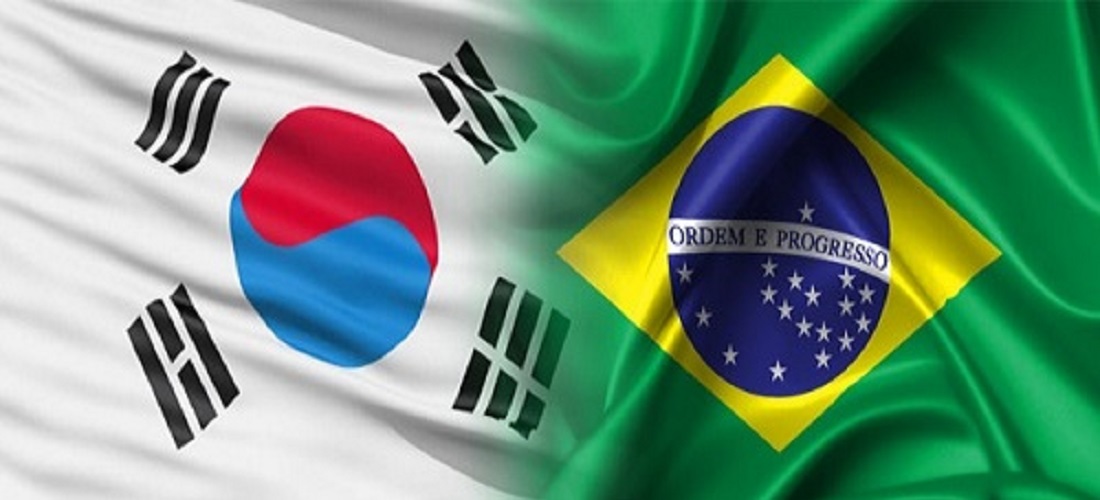
CNA study shows Brazil could increase exports to South Korea
Apr, 09, 2021 Posted by Ruth HollardWeek 202114
A study by CNA (the Brazilian confederation of agriculture and livestock) has pointed out that the signing of a free trade agreement with South Korea – the negotiations of which have been underway since 2018 within Mercosur – may increase Brazilian export revenue for at least 41 agricultural products. Looking at just a few of the leading products, the potential exceeds US$ 8 billion, four times more than the current export amount.
South Korea, which is the seventh leading destination for Brazilian agribusiness exports, generating US 2.2 billion in revenue in 2020, buys 70% of the food it consumes from abroad. The Koreans have agreements with 18 markets, including Brazil’s competitors: China, the United States, New Zealand, Australia, the European Union, and also from Brazilian neighbors, such as Peru, Chile, and Colombia.
According to CNA’s International Relations Superintendent, Lígia Dutra, Brazil is isolated and lagging in the international market but still has untapped potential. “We do not have commercial agreements; we are only able to export ‘commoditized products. The differentiated product pays high tariffs, and it is unable to enter the market”, she said. A “broad and ambitious” trade deal, she says, would bring down tariff and health barriers currently imposed by South Koreans.
According to the CNA analysis, the products with the most potential for exports to South Korea are meats (up to US$ 3.5 billion) and cereals (up to US$ 2 billion), with an emphasis on corn (US$ 1.7 billion) ). The organization also believes that items not very present in the South Korean market today can also gain space, such as soy (up to US$ 838.2 million), sugar and alcohol (up to US$ 706 million), beverages (up to US$ 359 million), coffee (up to $ 380.2 million), and fruit (up to $ 319.9 million).
There are also opportunities for segments in which Brazil does not have a significant share in the world market, but for which Korea is a major importer, such as fish, oilseeds (palm, palm oil, canola, or sesame seeds), and dairy products. A free trade agreement would also benefit importing agricultural fertilizers, dairy industry machinery, and technology services.
The concessions and benefits given to South Korean partner countries and products reduced Brazil’s market share for orange juice exports. Brazil lost an important customer and is now rooting for the success of negotiations with Asians.
Even among commodities, some suffer from South Korean tariffs. “The country has a high demand for meat and does not buy ours. Sanitary and phytosanitary issues need to be resolved, and a tariff agreement alone will not resolve this,” says the superintendent. Corn is another example. The South Koreans import more than 2 million tons but buy only 350 thousand from Brazil because of very high tariffs.
For CNA, the Asian country is a qualified market, with high per capita income and which consumes products with high added value. This could contribute to the diversification of the Brazilian export basket, with higher sales of items such as fruits, honey, and processed food. That is why Brazil needs to be careful when building this agreement, she says. “Not looking at Asia is to deny the current reality,” she said.
See the graph below for a history of Brazilian exports to Korea:
Brazilian exports to Korea | Jan 2017 to Feb 2021 | TEU
Graph source: DataLiner (To request a DataLiner demo click here)
Source: Valor Econômico
-
Ports and Terminals
Jun, 24, 2022
0
Federal Government recognizes highlights among ports and terminals
-
Other Logistics
Feb, 25, 2019
0
Ecovias presents Santos-Guarujá Bridge plans
-
Economy
Oct, 27, 2022
0
Development bank to finance fertilizer factory in south of Brazil
-
Sugar and Ethanol
Mar, 27, 2019
0
Brazil’s late cane harvest could catch NY sugar traders by suprise

